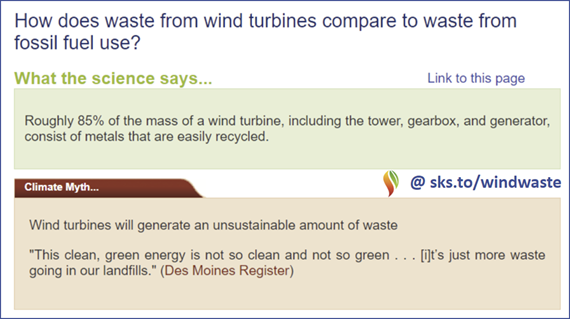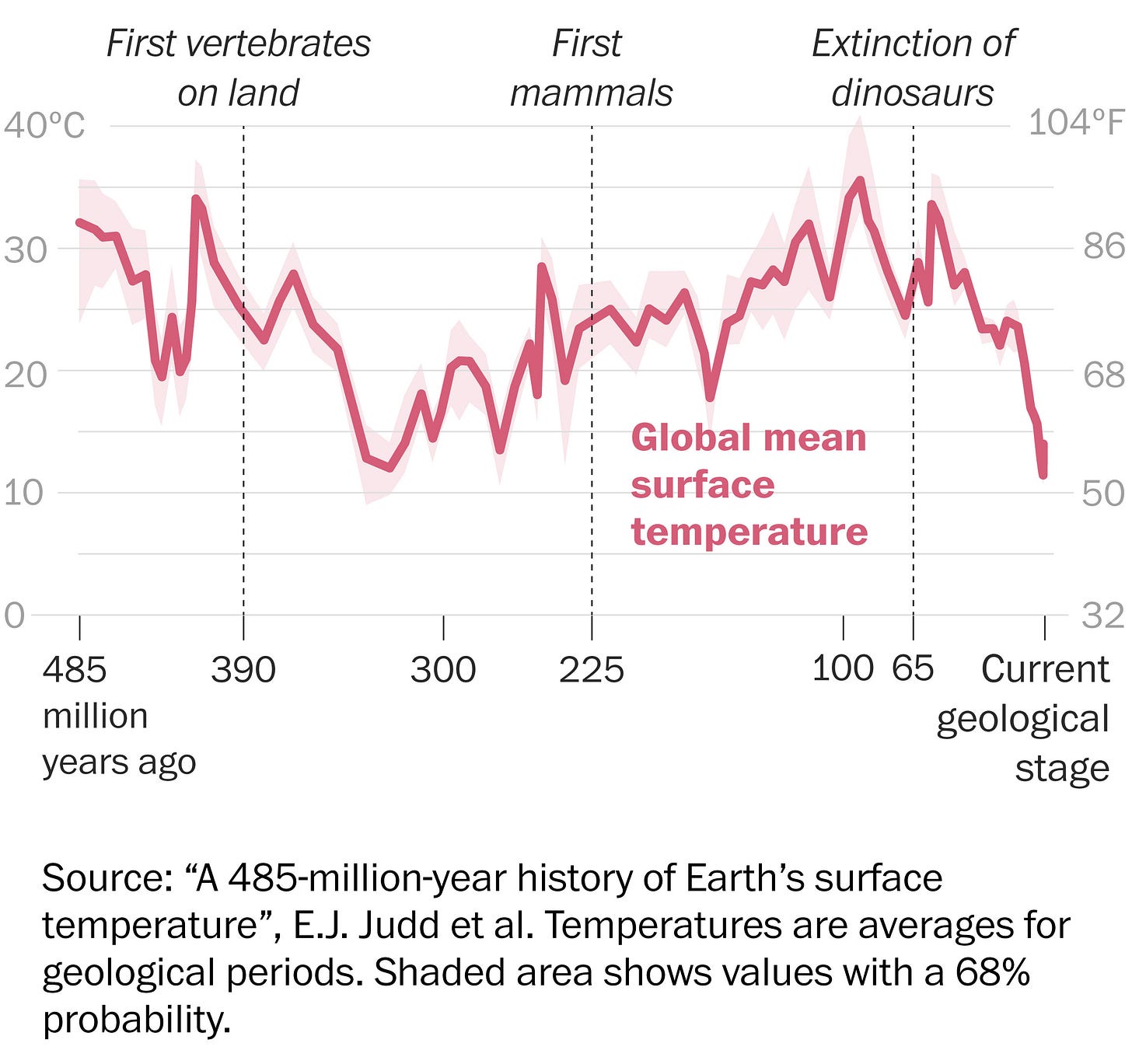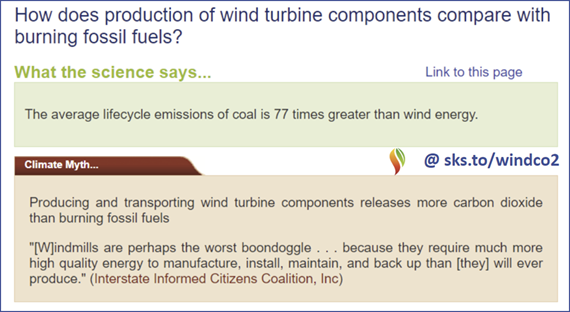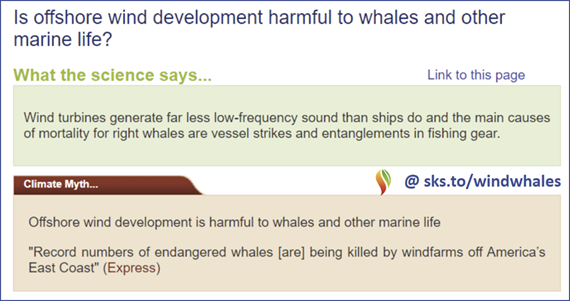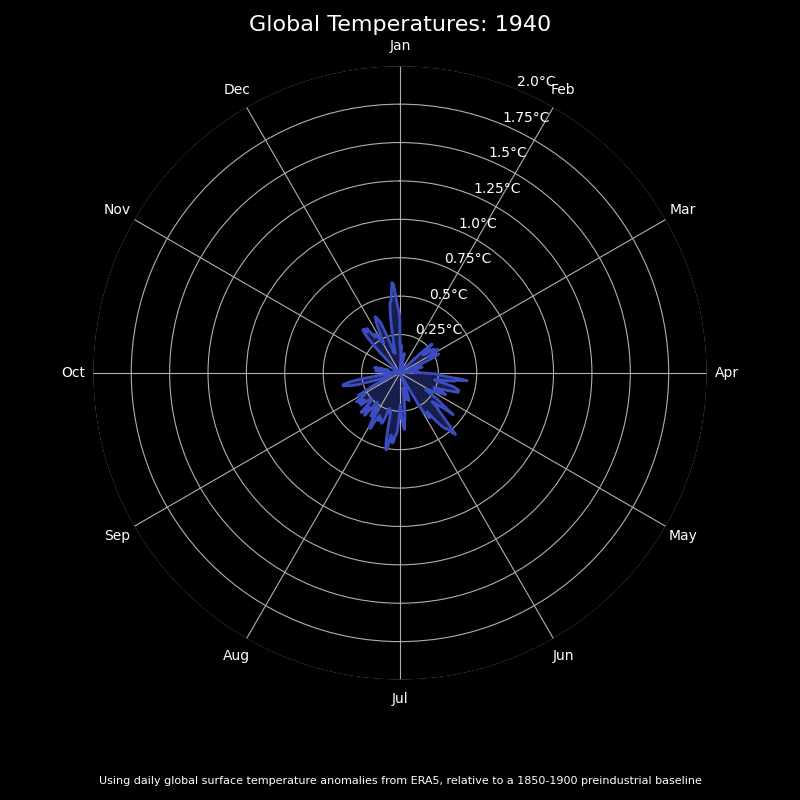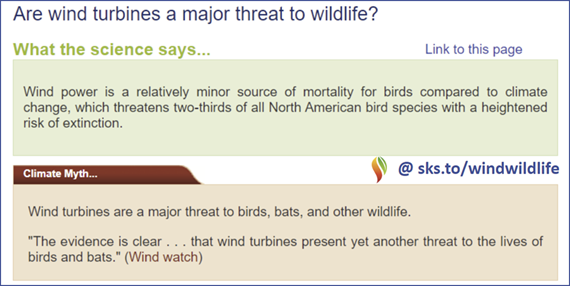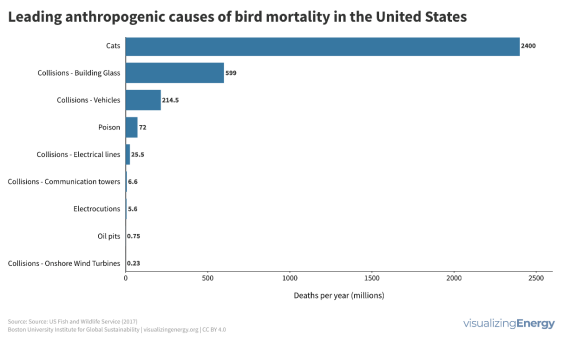Finally, there’s some good news to report from NOAA, the parent organization of the National Hurricane Center, or NHC: During the highly active 2o24 Atlantic hurricane season, the NHC made record-accurate track forecasts at every time interval (12-, 24-, 36-, 48-, 60-, 72-, 96-, and 120-hour forecasts), according to the preliminary 2024 NHC Forecast Verification Report released on Feb. 24. And 2024 research suggests that the research dollars spent since 2007 on improved hurricane forecasts could have led to over $10 billion in combined benefits just for the two major hurricanes that hit in 2024, Helene and Milton. But the budget for hurricane research could be slashed under the Trump administration.

Figure 1. Verification of official NHC hurricane track forecasts for the Atlantic, 1990-2024. (Image credit: Preliminary 2024 NHC Forecast Verification Report).
2025 SkS Weekly Climate Change & Global Warming News Roundup #10
Posted on 9 March 2025 by BaerbelW, Doug Bostrom, John Hartz
This week's roundup is again published by category and sorted by number of articles included in each. We are still interested in feedback to hone the categorization, so if you spot any clear misses and/or have suggestions for additional categories, please let us know in the comments. Thanks!
Stories we promoted this week, by category and number of articles shared:
Climate Change Impacts (13 articles)
- Australia’s second-hottest summer in 2024-25 ‘not possible without climate change’, scientist says 2024-25 summer at 1.89C above long-term average ‘will be one of the coolest in the 21st century’, according to one expert by Graham Readfearn, Australia News, The Guardian, Mar 1, 2025
- Weather tracker: six cyclones swirl simultaneously in southern hemisphere Bianca, Garance and Honde churn across Indian Ocean as Alfred, Rae and Seru spin through south-west Pacific by Staff, Australia News, The Guardian, Feb 28, 2025
- Ageing nuclear plant in Florida at risk from climate crisis, advocates warn Regulators extended the life of two of the oldest US reactors in Miami. Millions of people in the area are now vulnerable by Richard Luscombe , US News, The Guardian, Mar 1, 2025
- Earth’s strongest ocean current could slow down by 20% by 2050 in a high emissions future Melting Antarctic ice is releasing cold, fresh water into the ocean, which is projected to cause the slowdown by Petra Stock, Environment, Mar 3, 2025
- Half of global croplands could see a drop in suitable crops at 2C of warming More than half of global cropland areas could see a decline in the number of suitable crops under a warming scenario of 2C, new research finds. by Yanine Quiroz, Carbon Brief, Mar 04, 2025
- ‘Unusually strong’ storms bring risk of tornadoes and flash floods to US south Powerful thunderstorms likely to sweep through Arkansas, Louisiana, Mississippi and Alabama by Nina Lakhani, US News, The Guardian, Mar 4, 2025
- Carolina wildfires followed months of weather whiplash, from drought to hurricane-fueled floods and back to drought Scores of wildfires broke out across North Carolina, South Carolina and Georgia in early March 2025 as strong winds, abnormally dry conditions and low humidity combined to kindle and spread the flames. by Lauren Lowman & Nick Corak, The Conversation, Mar 05, 2025
- Is climate change supercharging Tropical Cyclone Alfred as it powers towards Australia? Cyclone Alfred formed in the Coral Sea towards the end of February when sea surface temperatures were almost 1C hotter than usual by Graham Readfearn, Australia News, Mar 5, 2025
- Major banana exporters could face `60% drop` in growing area due to warming Large-scale banana plantations in Latin America and the Caribbean could face a “dramatic” reduction in “suitable” growing area by 2080 due to rising temperatures, a new study warns. by Ayesha Tandon, Carbon Brief, Mar 06, 2025
- Cranky Stepdad vs Hydrogen For Energy: How To Respond To Enthusiasts by Michael Barnard, Clean Technica, Mar 05, 2025
- Butterflies in the U.S. are disappearing at a ‘catastrophic’ rate The number of butterflies in the contiguous United States declined by 22 percent this century, a collapse with potentially dire implications. by Dino Grandoni, Climate, Washington Post, Mar 6, 2025
- New study reveals potential cause of a ‘drought’ in violent EF5 tornadoes A quirky aspect of the way we measure twisters helps explain why there hasn’t been a top-tier-rated tornado in 12 years. by Bob Henson, Eye on the Storm, Yale Climate Connections, Mar 7, 2025
- Major banana exporters could face ‘60% drop’ in growing area due to warming Large-scale banana plantations in Latin America and the Caribbean could face a “dramatic” reduction in “suitable” growing area by 2080 due to rising temperatures, a new study warns. by Ayesha Tandon, Food & Farming, Carbon Brief, Mar 6, 2025
Fact brief - Is Greenland losing land ice?
Posted on 8 March 2025 by Sue Bin Park
![]() Skeptical Science is partnering with Gigafact to produce fact briefs — bite-sized fact checks of trending claims. You can submit claims you think need checking via the tipline.
Skeptical Science is partnering with Gigafact to produce fact briefs — bite-sized fact checks of trending claims. You can submit claims you think need checking via the tipline.
Is Greenland losing land ice?
 Data from satellites and expeditions confirm Greenland has been losing land ice at an accelerating rate for decades.
Data from satellites and expeditions confirm Greenland has been losing land ice at an accelerating rate for decades.
Glaciers gain ice via snowfall, while melting and ice breaking off into the ocean account for nearly all of Greenland’s ice-sheet loss. Rates vary season to season and year to year due to weather variation—however, multi-decade trends show ongoing loss.
Satellites launched in the early 1990s measure ice sheet height and gravity to detect changes in mass. They have found that Greenland has lost ice every year since 1998; from 2010 to 2018, average annual ice loss was six times that of the 1990s.
Greenland has lost 5,000 gigatons of ice since 2002. Rising global temperatures of about 2°F (1.1°C) since widespread fossil fuel burning began have driven the melt. Scientists warn that positive feedback loops such as the melting of methane-rich permafrost will further accelerate ice loss.
Go to full rebuttal on Skeptical Science or to the fact brief on Gigafact
This fact brief is responsive to quotes such as the one highlighted here.
Sources
NASA The Anatomy of Glacial Ice Loss
NOAA Arctic Report Card: Update for 2023 - Greenland Ice Sheet
National Academy of Sciences - Earth, Atmospheric, and Planetary Sciences Forty-six years of Greenland Ice Sheet mass balance from 1972 to 2018
UCAR Greenland's Ice Is Melting
World Wildlife Fund Six ways loss of Arctic ice impacts everyone
Carbon Brief How the Greenland ice sheet fared in 2024
CNN Greenland is getting greener. That could have huge consequences for the world































 Arguments
Arguments
























